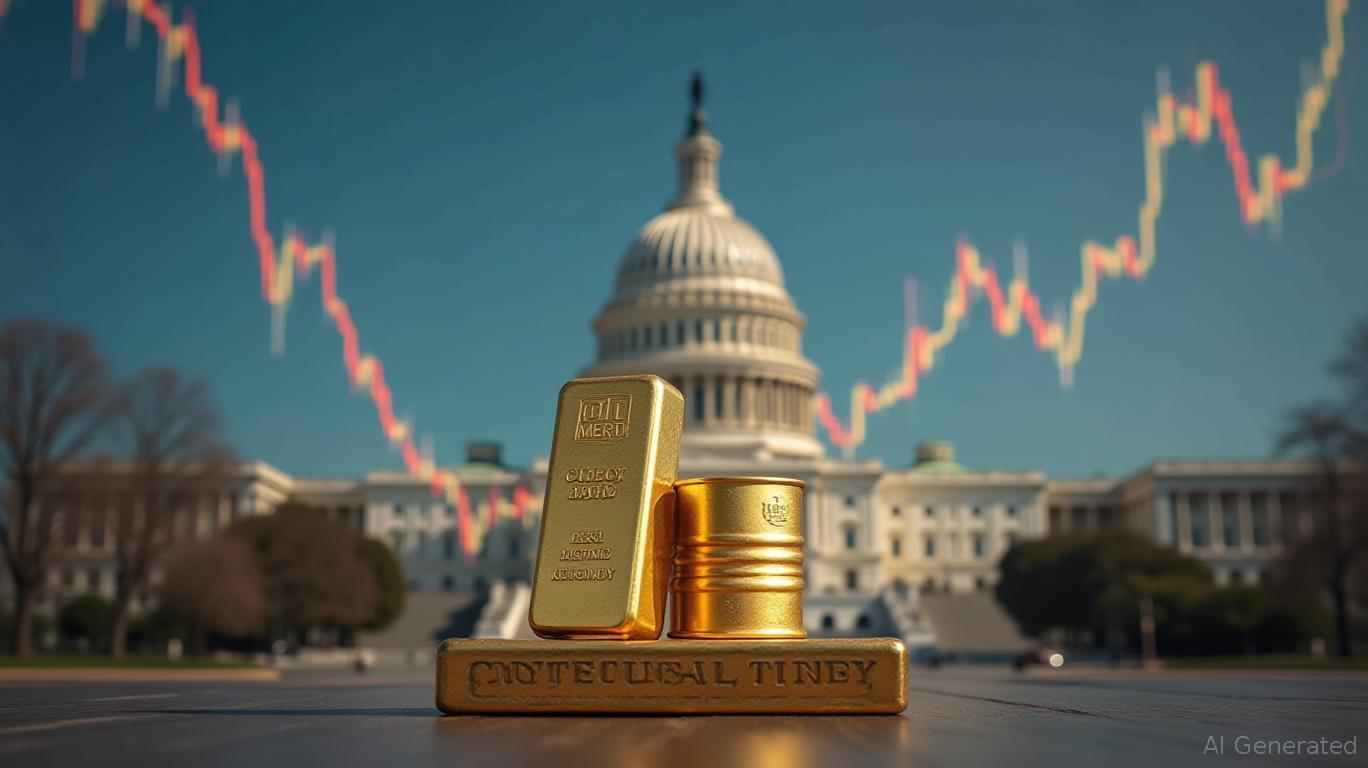Stocks Climb as Gold Surges, Oil Retreats Amid Washington Budget Clash
U.S. stocks finished higher Friday, with major indexes advancing as investors weighed political gridlock in Washington, falling oil prices, and a surge in gold.The Dow Jones Industrial Average added 1

U.S. stocks finished higher Friday, with major indexes advancing as investors weighed political gridlock in Washington, falling oil prices, and a surge in gold.
The Dow Jones Industrial Average added 172.15 points, or 0.37%, to close at 46,314.6. The Nasdaq Composite rose 160.75 points, or 0.72%, to 22,631.5, while the S&P 500 climbed 32.43 points, or 0.49%, to 6,664.39. Small-cap stocks lagged, with the Russell 2000 slipping 0.78% to 242.94.
Commodity markets moved in the opposite direction. Gold futures for December delivery jumped 1.06% to $3,717.40, their strongest level in weeks, as investors sought havens amid fiscal uncertainty. Crude oil futures for November fell 1.36% to $62.40, pressured by softer demand signals and easing geopolitical risk premiums.
WATCH: Former OpenAI Exec: The SHOCKING Truth About AI
In Washington, a deepening standoff over government funding added a layer of unease. Senate Republicans pressed for a temporary spending bill stripped of new provisions, while Democrats sought to tie continued funding to healthcare support. “The choice is pretty clear. It’s going to be funding the government through a clean, short-term continuing resolution or it’s going to be a government shutdown. That’s the choice Democrats have,” said Senate Majority Leader John Thune (R-S.D.).
Democrats countered that Republicans’ plan would maintain high healthcare costs. “Americans will see the glaring contrast between the Republican plan continuing the status quo of Donald Trump’s health-care cuts and high costs and the Democratic plan to avoid a shutdown while lowering premiums, fixing Medicaid, and protecting funds for scientific and medical research,” said Senate Democratic Leader Chuck Schumer (D-N.Y.).
Beyond fiscal politics, investors also tracked signals from the housing and global monetary landscape. Mortgage rates have fallen to 6.43%, the lowest in two and a half years, down from 8% in February 2023. The drop has raised hopes for a revival in housing demand and consumer confidence. “Housing affordability and higher rates have been major issues for would-be homebuyers and sellers, but the data is saying that a corner can be turned,” said Mike Dickson, Head of Research at Horizon.
Dickson noted that spreads between the 30-year fixed rate and the 10-year Treasury yield have narrowed sharply — from a peak of 350 basis points in March 2023 to 240 today — and could fall further if the Federal Reserve provides clearer guidance. A reduction of another 80 basis points would bring spreads back to pre-Covid norms, a shift that could “support the economy by driving more home buying and refinancing, lifting consumer confidence, and improving labor mobility,” the report said.
Meanwhile, overseas, the Bank of Japan kept rates steady at 0.5% but surprised markets with a hawkish tilt, beginning to unwind its massive portfolio of exchange-traded funds and real-estate trusts.
Friday’s moves underscore investor sensitivity to both domestic fiscal risks and global monetary shifts. While equities closed higher, the jump in gold suggests caution remains elevated heading into the final weeks of September, with the Oct. 1 shutdown deadline looming.
Disclaimer: The views in this article are from the original Creator and do not represent the views or position of Hawk Insight. The content of the article is for reference, communication and learning only, and does not constitute investment advice. If it involves copyright issues, please contact us for deletion.